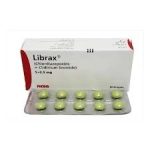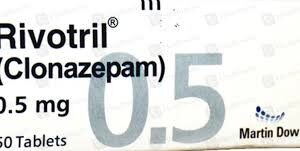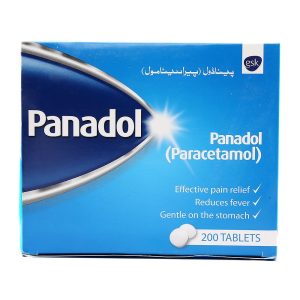Description
Ketosteril Tablet Uses And Price In Pakistan
Ketosteril tablet is a specialized medication designed for the prevention and treatment of chronic kidney disease by improving protein metabolism and reducing urea formation in the body. This scientifically formulated supplement contains keto and hydroxy analogues of essential amino acids that help support renal function and delay disease progression.
At Hamna Pharmacy, we are proud to be among the select few pharmacies in Pakistan offering this vital medication to patients nationwide. We provide authentic Ketosteril tablets with fast and reliable delivery services across all cities of Pakistan, from Karachi to Lahore, Islamabad to Peshawar, and everywhere in between.
How Ketosteril Tablet Works
After absorption, nitrogen from non-essential amino acids is taken up by the keto- and hydroxy-analogues, which are then transaminated to the corresponding essential amino acids. Ketosteril Tablet 100S price. This reduces the production of urea by reusing the amino group.
As a result, there is less uraemic toxin buildup. The remaining nephrons are not hyperfiltrated by keto or hydroxy acids. Supplements containing ketoacids have a beneficial impact on secondary hyperparathyroidism and renal hyperphosphataemia. Additionally, renal osteodystrophy might get better. When used in conjunction with a very low-protein diet, nitrogen consumption can be decreased without the negative effects of malnutrition and insufficient dietary protein intake.
You can confidently order Ketosteril 100s online in Karachi, Lahore, or elsewhere in Pakistan as Hamna Pharmacy is your trustworthy supplier for authentic kidney care medications.
Ingredients And Composition
Each Ketosteril Tablet contains the following α-ketoanalogues (calcium salts of essential amino acids):
Calcium 3-methyl-2-oxovalerate (isoleucine analogue) – 67 mg
Calcium 4-methyl-2-oxovalerate (leucine analogue) – 101 mg
Calcium 2-oxo-3-phenylpropionate (phenylalanine analogue) – 68 mg
Calcium 3-methyl-2-oxobutyrate (valine analogue) – present in therapeutic quantities
These components are designed to improve protein metabolism while reducing strain on the kidneys.
What Happens If I Miss A Dose Of Ketosteril Tablet 10×10’s?
Adults: 1 tablet every day
Children: Not recommended
Hamna Pharmacy is one of the licensed pharmacies from your closest location who deliver Ketosteril pill 10x10s on time. Once you request the medications and the pharmacy confirms your order based on a valid prescription and availability, you can get your medication without any delay.
Ketosteril Tablet Side Effects- Precautions & Warnings
Cautions Include:
- To prevent feeling lightheaded or dizzy, rise up carefully from a sitting or laying position as it may cause hypotension (low blood pressure).
- To prevent any possible drug interactions, let your doctor or pharmacist know if you are taking any other medications.
- May infrequently result in hypokalemia, or low blood potassium; hence, maintain your potassium levels by consuming adequate meals or supplements high in potassium.
Possible Side Effects Include:
- Increased calcium levels (rare)
- Mild nausea or stomach upset
- Constipation or bloating
About The Dosage- How To Use Ketosteril
Dosage:
Take as directed by your nephrologist. Don’t take more than is advised.
To maximize absorption and nitrogen binding, take pills with meals.
Use only under medical supervision, particularly in the pre-dialysis phase of CKD stages 3 to 5.
Storage Instructions
- Store below 25°C, in a cool and dry place.
- Protect from moisture and direct sunlight.
- Keep out of reach of children.
Why Buy Ketosteril Tablet In Pakistan From Hamna Pharmacy
We at Hamna Pharmacy make sure you receive this vital prescription for kidney treatment in a timely and safe manner.
- Authentic: All products on Hamna Pharmacy are acquired from authorized pharmacies and are 100% authentic.
- Secure: We employ SSL (standard security technology) to protect the privacy of all our clients’ data,
- Affordable: We strive to provide you with unbelievable savings without sacrificing quality.
- Super-Quick Delivery: We deliver all over Pakistan to make sure you get your necessary prescription drugs safely and on time.
Ketosteril Price In Pakistan- The Medicine On Demand For Delivery
Medication such as Ketosteril, as we know, cannot wait. Therefore, we have developed a professional system specifically for large cities like Karachi, Lahore, and Islamabad, providing quick access to urgent medication delivery nearby.
When talking about Ketosteril tablet price in Pakistan, it may cost you around of a Ketosteril Tablet 100S. However, you may get affordable prices if you are considering Hamna Pharmacy. Order directly from your phone or laptop instead of standing in line or looking from shop to shop. Every time, your medication is packed tightly and arrives at your house on schedule.
Get Ketosteril Tablet 100s Online In Pakistan
Hamna Pharmacy offers up to 30% discounts on drugs, allowing you to take care of both your wallet and health. We aim to make healthcare reasonably affordable for every Pakistani citizen without sacrificing quality.









Reviews
There are no reviews yet.